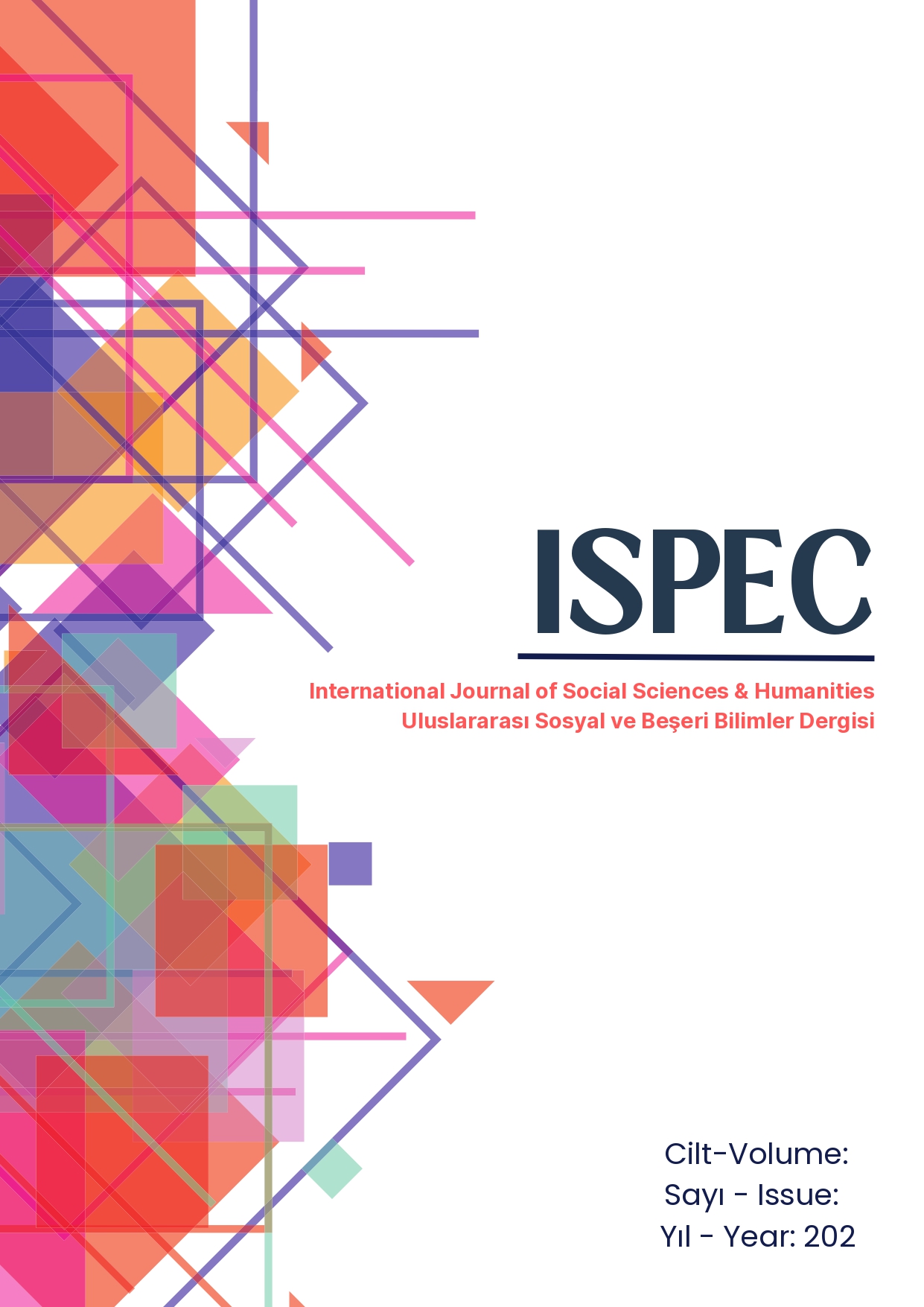Cognitive Behavioral Therapy for Self-Esteem Deficiency: A Case Report
DOI:
https://doi.org/10.5281/zenodo.15773097Keywords:
lack of self-esteem, cognitive behavioral therapy, anxietyAbstract
The study was carried out by taking the theorists into consideration. The client showing symptoms is 31 years old and female. Interviews with the client were conducted according to the cognitive behavioral therapy approach. The client stated that she did not know what she wanted due to the difficulties she experienced in her business life and that she was currently at a turning point in her life. She stated that she felt obliged to do everything perfectly because it was her own business. He stated that he could not bear the words coming to his name and surname when something went wrong and that he got very angry. He stated that due to these situations, he gained weight, lost his self-confidence and experienced high job anxiety. She sought treatment with complaints of insomnia at night when her work was interrupted. The client was first given psychoeducation about CBT. Then, information was given about lack of self-esteem. Information was given about what lack of self-esteem is, how it occurs, and coping techniques. An attempt was made to establish a therapeutic relationship with the client. A total of 5 interviews were held with the client. The duration of each meeting is 50 minutes. The interviews were conducted in collaboration with the client. Throughout the psychotherapy process, cognitive and behavioral methods appropriate to the client were used. As a result of the interviews with the client, it was observed that cognitive behavioral therapy applications significantly reduced the symptoms of low self-esteem. For this reason, CBT school is an effective method in the treatment of lack of self-esteem.
References
American Psychological Association, 2020. Stress effects on the body.
Aslan Yılmaz, H., 2022. Self-awareness and self-consciousness: a review from a social psychology perspective. Psikiyatride Güncel Yaklaşımlar, 14: 437-445.
Atik, Ü., Ünal, S., Akyüz, K., 1991. Lise Öğrencilerinin Özsaygı ve Yaşam Doyumu Düzeylerini Etkileyen Etmenler. Antalya: 27. Ulusal Psikiyatrik Bilimler Kongresi. 6-9 Kasım, Antalya.
Avşaroğlu, S., Üre, Ö., 2005. Üniversite öğrencilerinin karar vermede öz saygı, karar verme ve stresle başa çıkma stillerinin benlik saygısı ve bazı değişkenler açısından incelenmesi. 85-100.
Bailey, J.A., 2003. The foundation of self-esteem. Journal of the National Medical Association, 95(5): 388–393.
Bırni, G., Eryılmaz, A., 2024. Öz-Değerin kavramsal ve kuramsal incelemesi. Psikiyatride Güncel Yaklaşımlar, 16(2): 327-346.
Bozanoğlu, İ., 2005. Bilişsel davranışçı yaklaşıma dayılı grup rehberliğinin güdülenme, benlik Saygısı, başarı ve sınav kaygısı düzeylerine etkisi. Ankara University, Journal of Faculty of Educational Sciences, 38(1): 17-42.
Crone, E.A., van Drunen, L., 2024. Development of self-concept in childhood and adolescence: How neuroscience can inform theory and vice versa. Human Development, 68(5–6): 255–271.
Dervishi, E., Peposhi, F., Ibrahimi, S., 2020. Self-esteem in adolescents and its connection with stressful experiences. Journal of Psychiatry and Psychology Research.
Galanakis, M., Palaiologou, A., Patsi, G., Velegraki, I., Darviri, C., 2016. A literature review on the connection between stress and self-esteem. Psychology, 7(5): 687–694.
Harter, S., 2012. The construction of the self: Developmental and sociocultural foundations (2nd ed.). Guilford Press.
Hiçdurmaz, D., Öz, F., 2011. Benliğin bilişsel yaklaşımla güçlendirilmesi. Sağlık Bilimleri Fakültesi Hemşirelik Dergisi, 68-78.
İlgar, M.Z., Coşgun-İlgar, S., 2019. Bilişsel davranış değiştirme ve motivasyonel görüşme. Eğitimde Kuram ve Uygulama, 15(1): 47-73.
Kaplan, V., 2021. Lise öğrencilerinin benlik saygılarının bazı değişkenlere göre incelenmesi. Temel Eğitim Dergisi, 12: 25-38.
Kaufman, S.B., 2020. Transcend: The New Science of Self-Actualization. TarcherPerigee.
Kernis, M.H., 2005. Measuring self‐esteem in context: The importance of stability of self‐esteem in psychological functioning. 73(1): 569-1605.
Leahy. R.L., 2010. Bilişsel terapi yöntemleri. İstanbul: Hekimler Yayın Birliği.
McManus, F., Waite, P., Shafran, R., 2009. Cognitive-Behavior Therapy for Low Self-Esteem: A Case Example. Cognitive and Behavioral Practice, 16(3): 266–275.
Marton, L., Roach, L., Reid, H., Stewart, H., 2012. An evaluation of a CBT group for women with low self-esteem. Behav Cogn Psychother, 40(2): 221-5.
Nguyen, T.T., Nguyen, T.H., 2023. Reciprocal relationships between self-esteem, coping styles, and anxiety symptoms in adolescents: A longitudinal study. Child and Adolescent Mental Health, 28(2): 132–139.
Orth, U., Robins, R.W., 2014. The development of self-esteem. Current Directions in Psychological Science, 23(5): 381–387.
Pack, S., Condren, E., 2021. An evaluation of a group‑based cognitive behaviour therapy intervention for low self‑esteem in primary care. The Cognitive Behaviour Therapist, 14(e7): Article e7.
Rani, K.R., Sugiharto, P.Y.D., Sugiyo, S., 2022. Keefektifan konseling kelompok cognitive behavioral therapy (cbt) dengan teknik cognitive restructuring untuk meningkatkan self-esteem pada siswa. Bulletin of Counseling and Psychotherapy, 4(1): 44-48.
Rizvançe Matsani, Ş., 2020. Psikoloji kuramlarında benlik ve özsaygı kavramlarının incelenmesi. Uluslararası Vizyon Üniversitesi Dergisi, 90-99.
Steiger, A.E., 2024. Self-esteem. In R. M. Lerner, L. Steinberg (Eds.), Encyclopedia of Adolescence (2nd ed., pp. 431–443). Elsevier.
Turan, F.A., 2010. Üniversite öğrencilerinin ilişkilerle ilgili bilişsel çarpıtmalarını yordamada yalnızlık, benlik saygısı, yaş, cinsiyet ve romantik ilişki yaşama durumunun rolü. Yüksek Lisans Tezi, Anadolu Üniversitesi Eğitim Bilimleri Enstitüsü.
Turgut, T., Çınar Erden, S., 2021. Düşük Öz Saygıya Bağlı Psikolojik Sorunlarla Başa Çıkma ve Öz Saygıyı Artırmaya Yönelik Psikolojik Danışma Süreci: Bir Olgu Sunumu. Uluslararası Psikolojik Danışma ve Rehberlik Araştırmaları Dergisi, 3(2): 281-305.
Qamaria, S.R., 2019. Efektivitas konseling dengan pendekatan cognitive-behavior therapy untuk meningkatkan self-esteem. Journal An-Nafs Kajian Penelitian Psikologi 4(2): 148-181.
Downloads
Published
How to Cite
Issue
Section
License
Copyright (c) 2025 ISPEC International Journal of Social Sciences & Humanities

This work is licensed under a Creative Commons Attribution-NonCommercial-NoDerivatives 4.0 International License.






